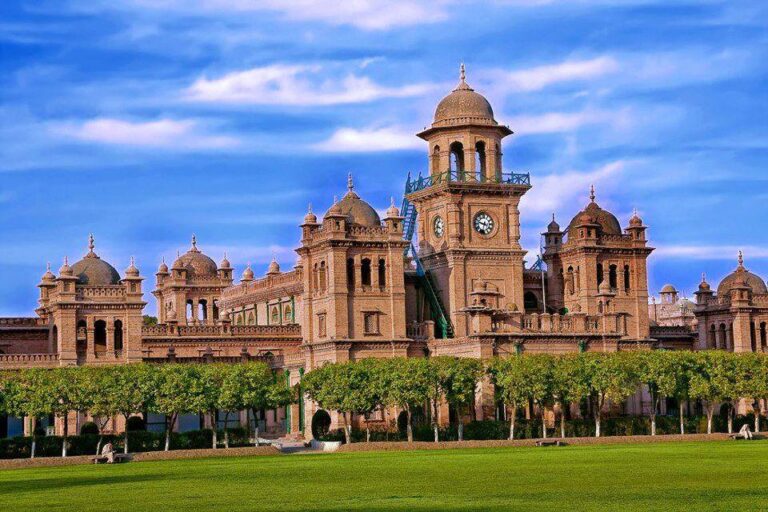By: Syed Sajid Shah
There are around 244 universities in Pakistan. The Higher Education Commission of Pakistan has approved 99 private universities, leaving the remaining 145 universities in the public sector. All these universities were established through government ordinances and in accordance with the requirements of the UGC. Unfortunately, the majority of our universities fall short of the international standards required for sustainable growth. It is unfortunate that a large number of our universities are in a state of decline, confusion, and disorder.
In many reputable universities like Gomal University D.I.Khan, Islamia University Bahawalpur, and many others, poor performance, human exploitation, drug addiction, bawdry, bareness, women harassment, and financial crises can be observed, which is clear evidence of mismanagement and incapability on the part of the management. International ranking systems use various performance indicators, including land allocated for the university, facilities provided to students, student-to-faculty ratio, academic excellence, staff quality, reputation, attitude, and research output. There are a total of 13 performance indicators strictly followed in international ranking systems.
In most cases, we find universities embroiled in conflicts due to political interference and nepotism. Each university should be a source of pride, excellence, virtue, discipline, and knowledge. Unfortunately, except for a few, our universities have become known for scandals involving sexual videos, harassment, and plagiarism. As a result of these unethical practices, we have lost credibility on the international stage.
Recently, I came across a detailed report in the print media about the future of Shangla University. The district of Shangla, with a low Human Development Index, established the Shangla Campus of Swat University in 2015 after significant efforts. However, the existence of this university is now mired in doubt and confusion, partly due to its dual name, Shangla University or Swat University.
A few weeks ago, when Swat University organized an Open Day event, it raised questions about its performance, sustainability, and existence. The leadership positions at Shangla University, such as the Vice Chancellor, Registrar, and Controller of Examinations, have not been filled with qualified and motivated individuals. The university failed to attract highly qualified staff since its inception. The withdrawal of PC-1 funding of Rs. 307 million further jeopardized its status, pushing it toward becoming just a campus.
Despite these challenges, Shangla University managed to attract a significant number of students, including a large number of girls from the surrounding areas. Education is an international subject, and adhering to international standards requires comprehensive planning, community involvement, student motivation, and transparent staff recruitment from the very beginning.
The decline in our education system can be attributed to its traditional and stagnant approach. We should aspire to have at least one university among the top 400 in world rankings. To achieve this, we need to adopt innovative education methods and focus on research. Universities should not be merely established for the sake of salaries but for advancing knowledge. We should aim to hire high-profile faculty members, provide purposeful infrastructure, including labs and libraries, and allocate budgets accordingly.
Education is a constitutional right for all citizens, as guaranteed by Article 25-A of our constitution. If the University of Oxford remains at the top of the rankings, we should learn from its success and follow its example. It is disheartening that out of 34 universities in Khyber Pakhtunkhwa (KP), only 27 spend a significant portion of their budgets on salaries, with only one billion allocated for research.
Furthermore, the number of scholars enrolling in Ph.D. and M.Phil. programs is declining. In the last three years, 11 universities had no admissions in higher education, and six KP universities had no admissions in M.S. or M.Phil. programs. An analytical report by the Governor’s Inspection Team for the years 2021-2024 reveals that no students were admitted to graduate programs in Women’s University Swabi, and Women’s University Mardan had no graduate program admissions in the last three years.
The Times Ranking Institute has released its 2024 rankings of universities worldwide, and unfortunately, not a single Pakistani university made it to the initial list of 400. Only Quaid-i-Azam University Islamabad secured the 401st position among the top 500 universities in the ranking. Between rankings 600 to 800, 14 universities are ranked with distinction, but none are from the provinces of Sindh and Balochistan.
In the list of the top 400 universities, Saudi Arabia has two, Iran has two, Turkey has three, and India has two universities. In the ranking between 600 to 800, universities like Abdul Wali Khan University Mardan, Air University, Capital University, COMSATS University, UET Taxila, Government College University Faisalabad, and the National University of Science and Technology are included.
To enhance our education system, we need to learn from successful institutions, prioritize research, allocate resources effectively, and ensure transparency in admissions and staff recruitment. Education is a fundamental right, and we must work towards providing quality education to all, irrespective of their background. It’s crucial for the government, the Higher Education Commission, and other stakeholders to collaborate in planning and developing a sustainable education system. The people of Shangla, in particular, deserve access to quality education, and the decision to exclude Shangla University from the list should be reconsidered in light of their educational needs and aspirations.


